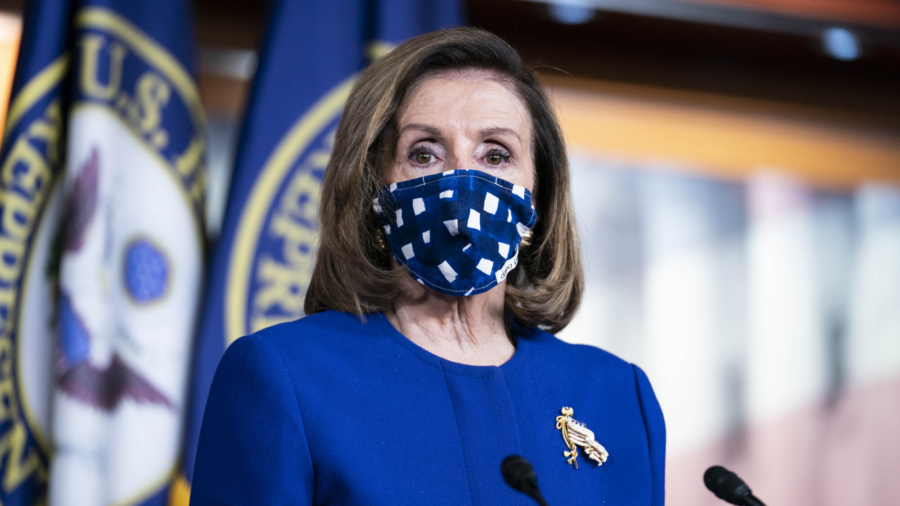House Speaker Nancy Pelosi (D-Calif.) told NPR on Monday that Congress is ready to decide on the presidential election if the results are disputed and the Electoral College vote does not produce a victor.
“We understand what the law is and the preeminence of the role of Congress and specifically the House of Representatives when it comes to counting the votes,” Pelosi told the outlet.
If no candidate for president receives a majority of Electoral College votes, the 12th Amendment of the U.S. Constitution requires the House of Representatives to vote for president. Elections in 1800 and 1824 did not yield winners and were ultimately decided by the House.
“But let’s not worry about that right now,” Pelosi told NPR. “We’re ready. We’re prepared. We’ve been ready for a while because we see this irresponsibility of the president, his disrespect for the Constitution, for our democracy, and for the integrity of our elections. So we’re ready for him.”
With 538 electors in the Electoral College, theoretically both President Donald Trump and Democratic challenger Joe Biden could each get 269 electoral votes. Yet despite current Democrat control of the House, such an outcome would likely benefit Trump as each state gets a single vote and the GOP dominates the delegations from 26 states, precisely the number of votes required to reach a majority. A change in the political composition of the House, however, could change this dynamic.
Congress could also become involved in the election if there are disputes about vote totals in some states. The surge in vote-by-mail arrangements amid the pandemic and declarations by Trump and his campaign that they would pursue an aggressive legal strategy in certain states that have extended the deadline to receive and count votes beyond Election Day, makes this a more probable scenario than in past elections. The disputed election of 1876 offers some precedent, with 20 electoral votes from four states contested on grounds of fraud. A 15-member commission comprised of five House representatives, five senators, and five Supreme Court justices eventually voted along partisan lines to award the 20 disputed electors to one of the candidates.
Trump has repeatedly called into question the legitimacy of mail-in ballots relative to absentee ballots and in-person voting.
“I think it’s a terrible thing when ballots can be collected after an election. I think it’s a terrible thing when people or states are allowed to tabulate ballots for a long period of time after the election is over because it can only lead to one thing, and that’s very bad,” Trump told reporters on Nov. 1 in Charlotte, North Carolina, in response to a question about if he would declare victory on election night regardless of whether all the results are in.
“I think there’s great danger to it, and I think a lot of fraud and misuse could take place,” the president said, adding that, “as soon as that election is over, we’re going in with our lawyers.”
From The Epoch Times

